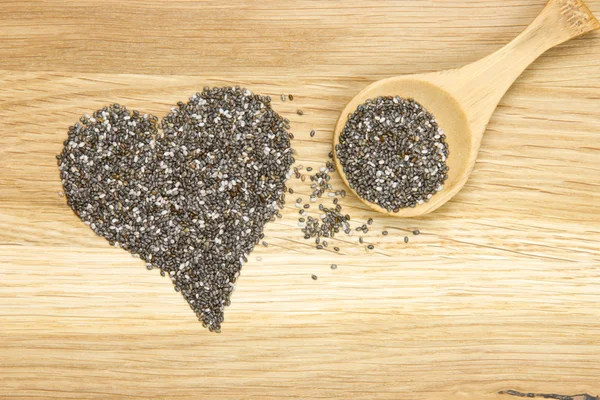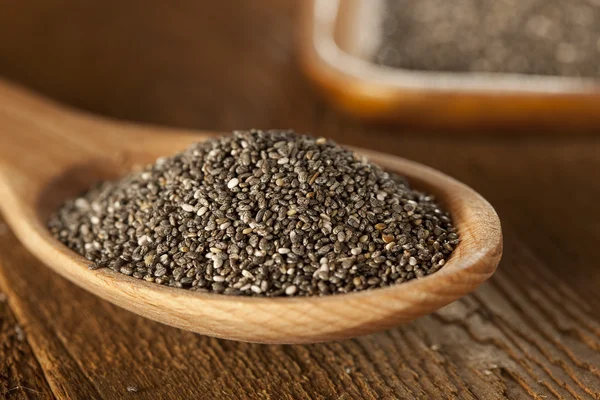Research Found Chia Seeds Powerful to Prevent High Blood Pressure – Chia seeds, once a prized food of ancient civilizations, are back in the spotlight for their impressive nutritional punch and potential health benefits. Scientists at Oregon State University have unlocked the secrets within these tiny seeds, revealing not just their rich content of omega-3s, protein, and fiber, but also exciting possibilities for treating diseases like cancer and high blood pressure.
Oregon State researchers sequenced the chia genome, uncovering a treasure trove of genes linked to properties valuable for drug development. This genetic data mining, published in Frontiers, dives deep into the seeds’ molecular makeup, hinting at their untapped potential for human health. Professor Pankaj Jaiswal, leader of the study, emphasizes the significance of their findings: “This opens up avenues for both improving human health through chia and further exploring its nutritional wealth.”
These unassuming seeds, derived from the Salvia hispanica plant, were staples for Mesoamerican cultures as early as 3500 BC. Revered by the Aztecs, they even found their way into religious ceremonies. Today, they’re experiencing a resurgence in popularity, thanks in part to TikTok’s #internalshower trend, where chia water made with lemon and water aids digestion.

Nutritional Content
A two-tablespoon serving of chia seeds packs a mighty punch: 140 calories, 4 grams of protein, 11 grams of fiber, and 7 grams of unsaturated fats. They hold the crown for the plant-based source of omega-3s, hailed by the US National Institute of Health for their potential in tackling cardiovascular diseases and even cancer.
Chia vs. Other Seeds: A Champion in Protein and Fiber
Compared to its peers, chia shines in the protein department: boasting 16 grams per 100 grams versus quinoa’s 14 grams and oats’ 13 grams. It also reigns supreme in fiber, containing 34 grams per 100 grams compared to quinoa’s measly 7 grams. This fiber combo, with both insoluble and soluble forms, promotes satiety, stabilizes blood sugar, and improves digestion.
Chia for a Sustainable Future and Improved Health
Unlike major crops, chia, an “orphan crop,” has been largely overlooked by science. Yet, its ability to thrive on land unsuitable for traditional grains makes it a promising option for farmers facing climate challenges. As Associate Professor Sushma Naithani emphasizes, “We need to diversify our diets with nutrient-rich minor crops like chia to ensure long-term food and nutrition security.”
Unlocking the Secrets of Chia’s Bioactive Peptides
The Oregon State team identified 29 genes involved in omega-3 and omega-6 production, and a whopping 2,707 genes potentially creating small bioactive peptides. Studies suggest these peptides impact vital systems like digestion, immunity, and cardiovascular health. By understanding how these peptides work after chia seed consumption, researchers hope to pave the way for developing treatments for conditions like type-2 diabetes and high blood pressure.
Here’s a breakdown of what we know so far:
- Chia seeds are packed with nutrients: They are a rich source of omega-3 fatty acids, protein, fiber, and various minerals. These nutrients are already known to play a role in overall health and disease prevention.
- New research points to potential benefits: The Oregon State study identified genes in chia seeds linked to the production of beneficial compounds like omega-3s and bioactive peptides. These compounds may have properties that could help regulate blood pressure and fight cancer cells.
- More research is needed: While these findings are encouraging, they are preliminary and require further investigation. Larger, longer-term clinical trials are necessary to confirm the specific effects of chia seeds on high blood pressure and cancer in humans.
The Future of Chia: Growth and Genetic Enhancements
Oregon State researchers hope their findings encourage chia cultivation in Oregon and spark breeding programs to amplify chia’s health-promoting traits. This tiny seed, with its ancient legacy and modern-day potential, could hold the key to a healthier future for all.
ALSO READ: Study uncovers vast genomic diversity in Aboriginal Australian communities








